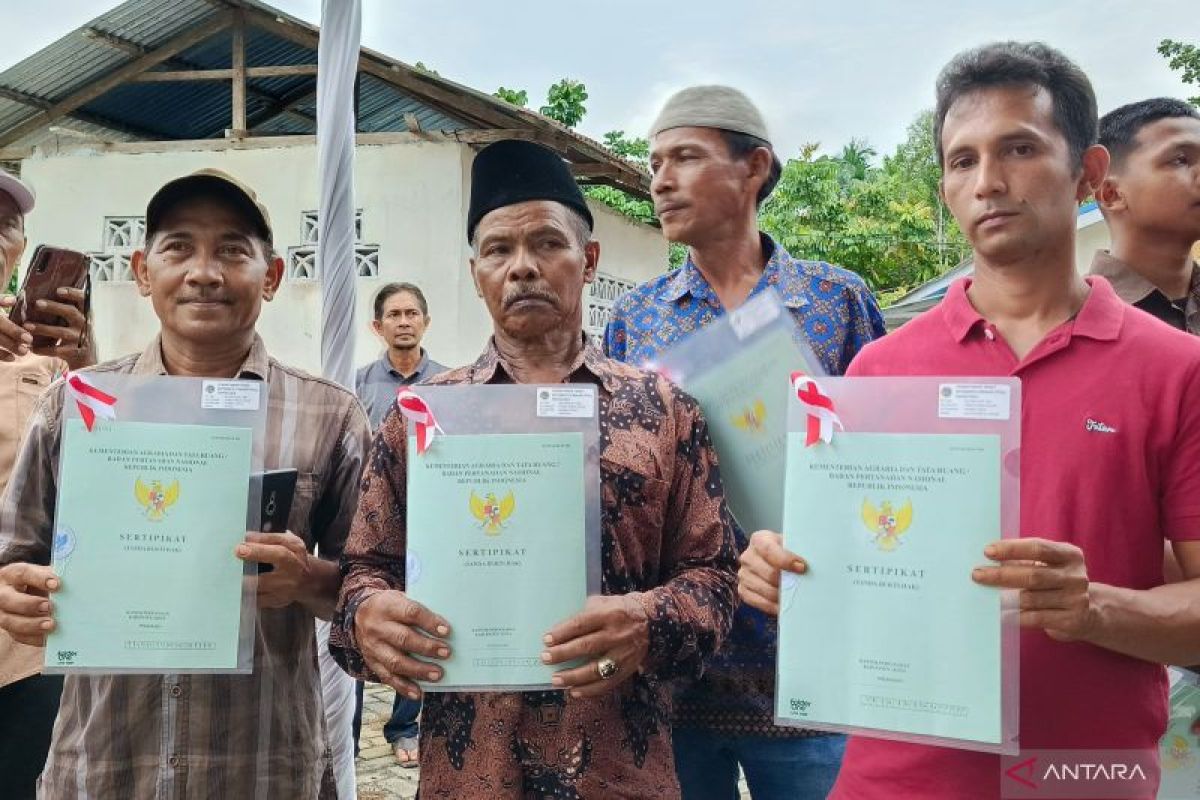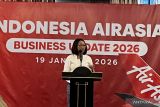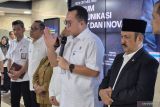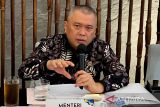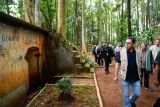Jakarta (ANTARA) - Land is a primary need for people to establish homes, office buildings, agricultural production areas, as well as other infrastructures that support welfare improvement.
Land management can help the development of an area proceed in an orderly manner. By definition, land use management is the arrangement or planning of land functions rationally and effectively to create order.
According to Government Regulation Number 16 of 2004 concerning Land Use, the implementation of such management must be based on integration, efficiency and effectiveness, harmony, balance, sustainability, openness, equality, justice, and legal protection.
In general, the goal of land use management is managing ownership and utilization, be it by the state, private parties, or individuals, so that it can support the improvement of shared prosperity.
Through the Ministry of Agrarian Affairs and Spatial Planning (ATR), the government is seeking to realize sustainable land use management for the development and improvement of the people's economy.
The main policies implemented to realize sustainable land use management are the land consolidation program and the Complete Systematic Land Registration (PTSL) program.
The two programs are deemed practical and have been proven to make a real contribution, both in terms of foreign exchange and welfare improvement, by helping boost land prices as well as making land utilization more productive.
Land consolidation
Land consolidation is a land use management policy that is included in the government's Agrarian Reform program. It has been designed by the Ministry of ATR to make land utilization more optimal.
The ATR Minister's Regulation Number 12 of 2019 concerning Land Consolidation states that the policy aims to organize and utilize land according to spatial plans for public interest, with the goal of improving welfare by involving active community participation.
Evidence of increased welfare through this program can be seen in Gasol Village, Cugenang Sub-district, Cianjur, West Java, which was devastated by a 5.6-magnitude earthquake in 2022.
The village, which covers an area of 58,316 hectares, has recovered through the land consolidation policy, which has boosted its economic value.
Under the program, local residents, voluntarily and by mutual agreement, gave a part of their land to the government to manage so that public facilities could be built, such as places of worship, community houses, electricity systems, roads, and irrigation systems for agricultural land.
According to the residents, since the policy's implementation, mobility has become easier due to better road access and agricultural production has become more optimal due to the presence of permanent irrigation channels. Furthermore, the selling price of land, which was initially Rp200 thousand (around US$12.23) per square meter, has increased to Rp500 thousand (around US$30.58) per square meter.
The residents of Tebing Tinggi Okura village, East Rumbai sub-district, Pekanbaru city, Riau, have also experienced an improvement in welfare.
During the visit of ATR Minister Agus Harimurti Yudhoyono in May 2024, local residents conveyed that before the implementation of the land consolidation policy, the local area was often hit by floods due to the overflowing of the Siak River.
However, following land consolidation, which was carried out on 76 plots of land with an area of 54.54 hectares, the area is no longer experiencing floods and the selling price of the land has also doubled.
Complete Systematic Land Registration (PTSL)
The PTSL program is one of the pillars for realizing good land use management. The program covers first-time land registration activities, which are carried out simultaneously for all lands that are not yet registered.
Under the program, lands owned by people, regional governments, and private parties are registered with the aim of ensuring legal guarantees for land ownership rights.
Minister Yudhoyono said that apart from providing legal certainty through certification, the program can also help boost foreign exchange through non-tax state revenue (PNBP). This is because registered land is subject to taxation and the proceeds from tax are used to improve the collective welfare of the community.
Through the PTSL program, the government can create an effective land use management scheme to realize agrarian reforms. Stakeholders can assess the contour and effectiveness of the land so that its utilization can be made more optimal.
According to the ATR Ministry's data, since the program was launched in 2017 until June 22, 2024, as many as 113.5 million plots of land have been registered under the PTSL program.
Cumulatively, the economic value gained during the period has reached more than Rp6,519 trillion.
Furthermore, from February 21, 2024, to June, state revenue through the PTSL program reached Rp215.8 trillion, obtained from 2.4 million plots of newly registered land.
This means, on average, every 1 million plots of land registered under the PTSL program can contribute around Rp60 trillion to Rp100 trillion to state coffers.
Thus, the more land registered under the PTSL program, the larger Indonesia's gross domestic product (GDP) would be. If implemented sustainably, the program can support an increase in the community's per capita income to US$13 thousand by 2045.
Considering the large potential state revenue, the government is targeting the PTSL program realization to reach 120 million plots of land in 2024 and 126 million plots in 2025.
Baca juga: PMI should implement environmental improvement program: Kalla
Baca juga: Ministry continues efforts to improve services for Hajj pilgrims
To accelerate land registration through the program, the Ministry of ATR has asked regional governments to provide ease to the community by exempting the Land and Building Rights Acquisition Tax (BPHTB) for the first-time land registration program.
Currently, there are 121 districts and cities that have provided ease or exempted the BPHTB as well as committed to disseminating information so that the PTSL program's target can be reached.
The implementation of land consolidation and the PTSL program acceleration are the manifestation of the government's commitment to realizing sustainable land use management whose benefits can directly impact the community.
The goal is that every inch of land in the country can be used optimally to improve people's welfare.

